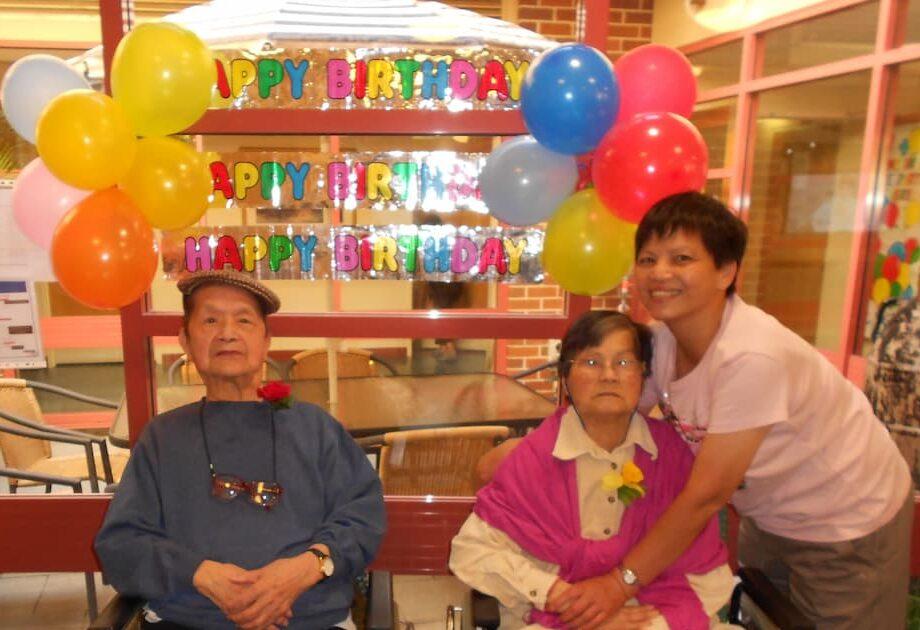Mabel’s Story
Looking back, I wish I had seized the opportunity to educate myself and my family about dementia sooner. Together, we could have navigated the complexities of this condition with greater understanding and compassion.

Mabel Cheng’s Story for Face Dementia
I was born and raised in the vibrant city of Hong Kong. Growing up, I was privileged to have five siblings by my side, creating an abundance of cherished memories.
I migrated to Australia in the late 1970s and my parents joined me in the late 1980s and my sisters in the early 1990s. As the years passed, life presented us with unexpected challenges. My mother suffered a stroke in her seventies, forever altering the course of our lives. I was one of her caregivers, providing support with her fluctuating health. In her eighties, my family noticed changes in her behaviour. At times she would do and say unusual things in public, like removing items of clothing or speaking to herself in a way we couldn’t understand.
My mother had always been an impatient person, but she started having uncontrollable, angry outbursts. Caring for her became very challenging as we struggled to understand and manage her unpredictable moods. Sadly, it was after her passing in 2014, I discovered these distressing behaviours were probable signs of dementia. She was never formally diagnosed.
My father experienced a similar journey. In his eighties, he moved into an aged care facility as his language abilities were gradually deteriorating. He would call us all the time and seemed very insecure.
Because we were unaware of the connection between these cognitive and behavioural changes and dementia, my family and I faced numerous obstacles in providing the care our parents deserved. It was a daunting task, navigating unfamiliar territory without proper understanding or guidance.
One year, before my parents passed away, I had the opportunity to attend a dementia information session, I realized my parents had been living with dementia. My siblings and I had rarely discussed the possibility of dementia nor explored strategies to manage its symptoms. If we had recognised the signs earlier, we would have promptly taken my parents for a thorough medical evaluation.
Dementia, like any other illness, should never be a source of shame. Unfortunately, our lack of awareness had unintended consequences, delaying a proper diagnosis, and hindering access to available treatments and practical tips for caregiving.
Looking back, I wish I had seized the opportunity to educate myself and my family about dementia sooner. Together, we could have navigated the complexities of this condition with greater understanding and compassion. By facing dementia and seeking assistance, we could have enhanced the quality of care provided to our beloved parents.
My advice now for other caregivers is there is no right or wrong, just trial and error, so follow your heart. Look after yourself or you cannot look after your loved one, and enjoy the quality time you have with them while you can. I know I couldn’t have fulfilled my duties as a daughter without the patience, understanding and support of my husband.


